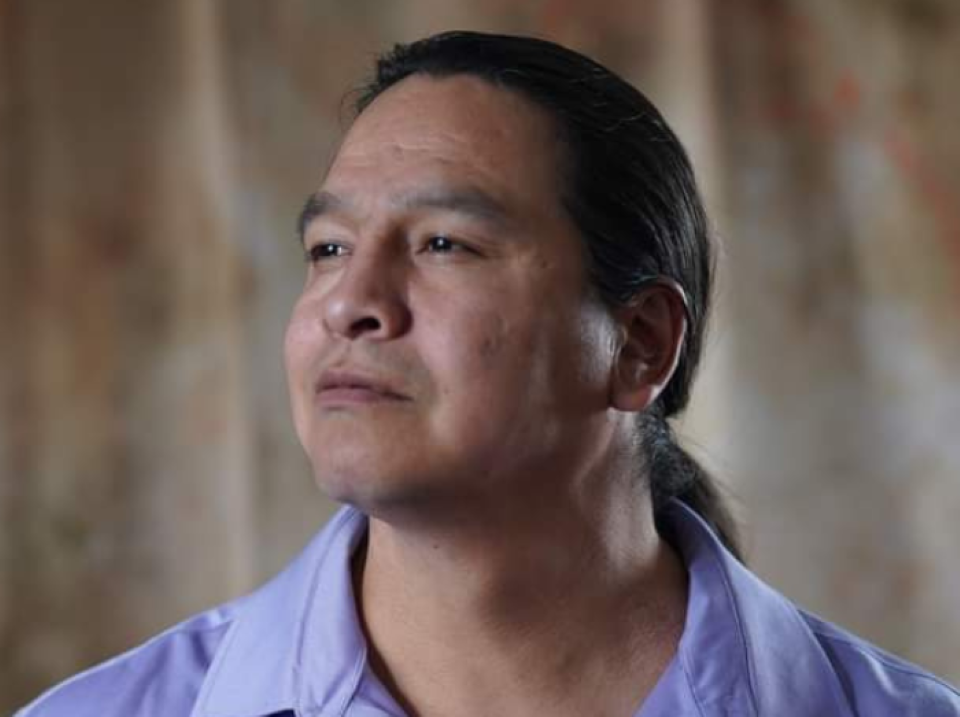LESTOCK — Jeromy Desjarlais is praising an experience that he said will help him grow as a filmmaker.
The Lestock-area resident, who owns video production company No Budget Films, was one of 10 filmmakers from across the country, and the only one from Saskatchewan, selected for the CBC New Indigenous Voices 2025 program.
“We’re shown the industry, how to get a foothold in the industry and different jobs to take on to open your eyes to the industry. We meet a lot of people in the industry, [learn] what they do and how they do it, and they train us with different cameras,” said Desjarlais. “It’s kind of a crash course, but it’s really helpful. It totally opened my eyes to what film is.”
“I taught myself”
He says he gained the opportunity by chance. A friend sent him a message through Facebook about the program. DesJarlais clicked on the link and was skeptical about it at first, because he thought he might be too old. He was accepted and told to keep his participation under wraps.
“I was asked if I would go to Winnipeg for that time, and would I be willing to take all of this time out to put it all together, because it’s 12 weeks,” said Desjarlais, who added it was worth it.
“I think we need more of that, especially here in Saskatchewan. In Saskatchewan, when I first started to get into film, it was about three years ago, I phoned every place and I phoned everywhere.”
Before he was accepted into this program, Desjarlais told production companies he was willing to work for free to get his foot in the door, but he never received any responses. At that point, he wasn’t certain what to do, so he purchased the gear himself.
“I learned myself. I taught myself and I did a lot of YouTube searching and a lot of googling. I learned how to shoot with a camera,” he said.
Desjarlais believes he had the eye for film, and found he was a natural editor once he started with the process.
Several productions to his name
His credits include a 23-minute documentary Purple Crab, a 48-minute documentary called A Safe Place to Call Home, which he put on the Film Freeway program and submitted to festivals. He has also created five different music videos. He says he has been screened 30 different times at film festivals, has won 17 awards and has been invited to Los Angeles, Las Vegas and Toronto.
He said he wants to tell Indigenous stories. For too long, Desjarlais said it’s been non-Indigenous people telling the stories of Canada’s Aboriginal peoples, and while he doesn’t think it’s wrong, they’re missing some cultural elements.
“They see things differently than an Indigenous person would. There’s those things that are missing that are cultural, like our Indigenous humour. I want to put that in and show who we truly are. I want to make these films. So, this program was just perfect for me, because it just hit on everything I needed to learn.”
His next feature will be filmed in Saskatchewan; details will be announced later, he said.
“It’s going to show who we are and bring light to certain dark things that are going on in Canada right now,” he said.
Helping emerging Indigenous creators
Abiola Agbayewa with the National Screen Institute – Canada (NSI) says the program helps emerging Indigenous creators learn the essential elements of working in film, TV and digital media. Training includes online learning, in-person sessions and hands-on experience in Winnipeg.
As part of the program, Agbayewa said participants collaborate to produce a short film, written and directed by a member of the cohort. This project serves as both a creative milestone and a professional portfolio piece.
Upon completing the training and production phases, their achievements were recognized at a graduation ceremony.
Desjarlais said it started with a two-week online component and then a four-week session in Winnipeg. A six-week internship was supposed to follow, but he couldn’t find a company in Saskatchewan, and it would have cost more money than he was making to go to Winnipeg. Still, he came away praising the experience.
“It’s been great. I really, really enjoyed it,” said Desjarlais. “The film part – showing us about film and showing us about different jobs and taking us out to different places ... it shows us what the film world really is.”
Before he took the program, Desjarlais said he had basically no training in film.
“Going into this, I wasn’t sure what I was getting into. So when we did it, it just totally opened my eyes up, and I understand right now how I can get a job in the industry in different fields,” said Desjarlais. ‘It’s enlightened me quite a bit ... and not only that, they’ve given us hands-on experience.”
Learning more than film
There has also been a life skills component, teaching participants how to work with others and live a healthy lifestyle.
“Mentally, I feel better. I’m in a better place than when I started this program. With all of the speakers that came in, it’s very helpful in that way.”
The biggest benefit, though, was being around other filmmakers who share his enjoyment of film.
"Any Indigenous people that are looking to get into film, I highly, highly suggest that you put your name out and you try to be a part of this. Even if you went to school for it already, this course will give you something that you might not have gotten, and you might learn something here that you missed in school. It’s good for anybody that would like to get into film.”



